Hamas leaves Gaza talks with no ceasefire deal
Hamas’ Gaza leader Yahya Sinwar emerged from days of silence to deliver a hardened negotiating position amid signs of increased tension between Israel and the US
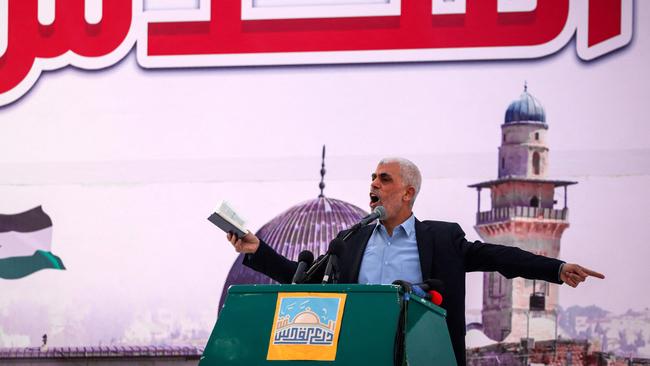
Hamas said it was pausing its participation in talks aimed at securing a ceasefire in Gaza, after its leader in the enclave emerged from days of silence to deliver a hardened negotiating position amid signs of increased tension between Israel and the U.S.
Yahya Sinwar, who had been largely disengaged from the talks until recently, is demanding that Israel commit to discuss a permanent stop in the fighting, putting him at odds with other Hamas leaders, according to officials familiar with the discussions.
Egyptian officials say Sinwar believes Hamas currently has the upper hand in negotiations, citing internal political divisions within Israel, including cracks in Prime Minister Benjamin Netanyahu’s wartime government and mounting U.S. pressure on Israel to do more to alleviate the suffering of Gazans.
Those tensions have been on display in recent days, including in a speech from Vice President Kamala Harris on Sunday calling for an immediate six-week ceasefire. “Given the immense scale of suffering in Gaza, there must be an immediate ceasefire,” she said.
Egyptian officials said Sinwar hopes friction between Washington and Israel could allow him to cut a deal more favourable to Hamas and is pushing for including a permanent ceasefire and a complete withdrawal of Israeli troops from Gaza.
US and Arab officials for weeks have been pushing Israel and Hamas to agree to a six-week truce ahead of the start of the Islamic holy month of Ramadan, which begins around Sunday.
Arab and Israeli officials say they fear that Sinwar is deliberately undermining the talks in the hope that Ramadan will galvanise popular Arab support for Hamas, leading to an escalation of tensions in the West Bank and Jerusalem.
Qatar has threatened to expel Hamas officials from their base in Doha should they fail to persuade the group’s Gaza-based leaders to agree to a deal, according to a Hamas official and Egyptian officials.
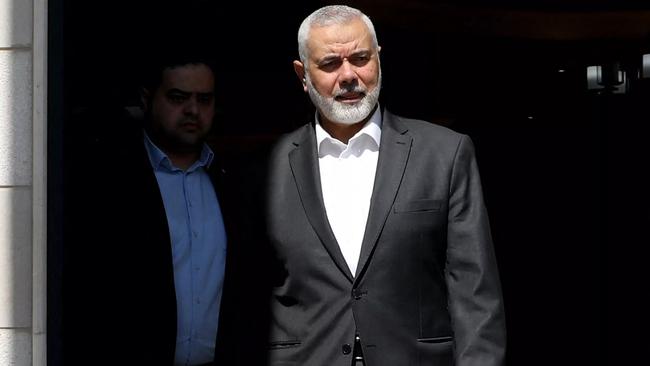
The latest setback in the talks dimmed hopes for an imminent end to the fighting that would ease political tension across the Middle East and allow international aid organisations to deliver badly needed aid across the strip, amid widespread hunger and deprivation. More than a dozen children have died recently due to severe malnutrition and dehydration in northern Gaza, which has largely been cut off from aid for over a month.
Hamas officials who were in Cairo for the negotiations left on Thursday. The group might return to Cairo on Sunday for more talks, Egyptian officials said.
Hamas on Thursday said its delegation was leaving Cairo “to consult with the movement’s leadership.” It added that it would continue to negotiate for the movement’s key goals: an end to the fighting, securing more humanitarian aid and allowing displaced Gazans to return to their homes.
Israel has said that a collapse in talks would prompt it to move ahead with a military operation against the city of Rafah, which Israel sees as the last major Hamas stronghold in Gaza and where more than a million Palestinians are sheltering.
The Israeli military “will continue to operate against all the Hamas battalions across the entire strip and this includes Rafah, the last stronghold of Hamas. Those telling us not to operate in Rafah are telling us to lose the war and that won’t happen,” Netanyahu said Thursday.
The US has warned against such a move without a plan to limit civilian harm as the death toll from the war soars. Analysts say Israel isn’t yet prepared to move on Rafah because of a lack of troops and the need to evacuate civilians.
More than 30,000 Palestinians have been killed in Gaza since the start of the war, most of them women and children, according to Palestinian health authorities, whose numbers don’t otherwise distinguish between militants and civilians.
Israel has said its priority in the talks is to secure the release of dozens of hostages captured during the Oct. 7 Hamas-led attacks, which Israeli authorities say killed more than 1,200 people, mainly civilians. More than 100 hostages were released during a week long truce in November. Around 130 remain captive in Gaza, including more than 30 that Israel says are dead.
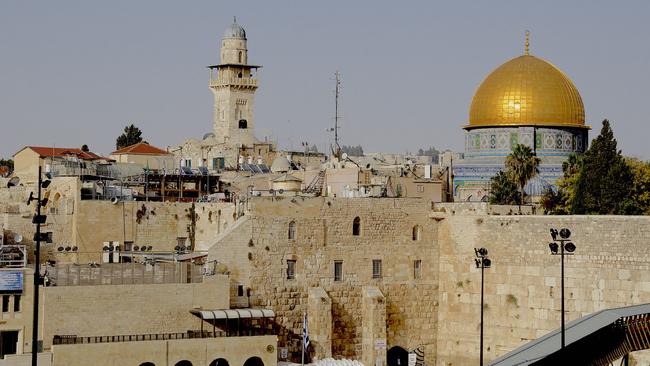
Sinwar’s demands have put him at odds with Ismail Haniyeh, the head of the group’s Qatar-based political bureau, which has been leading talks with Qatari and Egyptian officials. Haniyeh has been willing to accept a six-week pause in the fighting to offer some relief to Gaza’s 2.3 million people, while using that time to explore the possibility of a permanent ceasefire and full Israeli military withdrawal.
Other sticking points remain, too. Hamas hasn’t said how many hostages are still alive. Israel won’t accept Hamas’s demand to allow all Palestinians displaced in the south to freely return to the north. Israel doesn’t want to allow fighting-age men to be allowed to move freely. Hamas is demanding whole families to be allowed to go back.
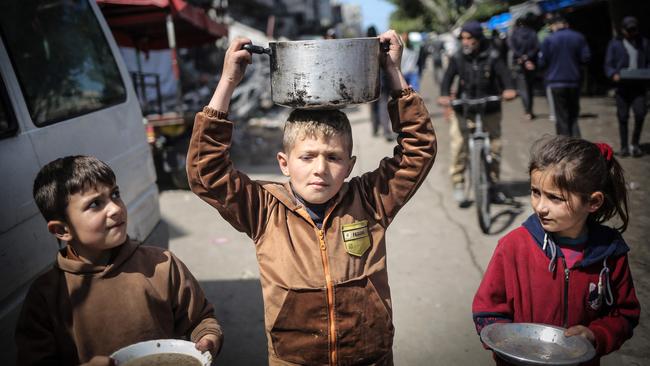
Hamas on Thursday appealed to Palestinians and their supporters to rise up during Ramadan. “We call on our nation to make its days and nights a field of support and victory for our people in the Gaza Strip, Jerusalem and the blessed Al Aqsa Mosque,” the group said in a statement.
Al Aqsa Mosque, one of Islam’s holiest sites, has been a flashpoint for tensions in the past. It is housed in a compound in Jerusalem that is known to Jews as the Temple Mount and is Judaism’s holiest place.
The Biden administration, under electoral pressure over the scale of humanitarian suffering in Gaza, has thrown its weight behind the talks, hoping to secure a pause in fighting to make it easier to inject more humanitarian aid. President Biden is expected to use his State of the Union address Thursday to announce that the U.S. military will build a temporary pier on the Gaza coast for cargo ships to unload food, water and other emergency supplies, according to U.S. officials who briefed reporters ahead of the speech.
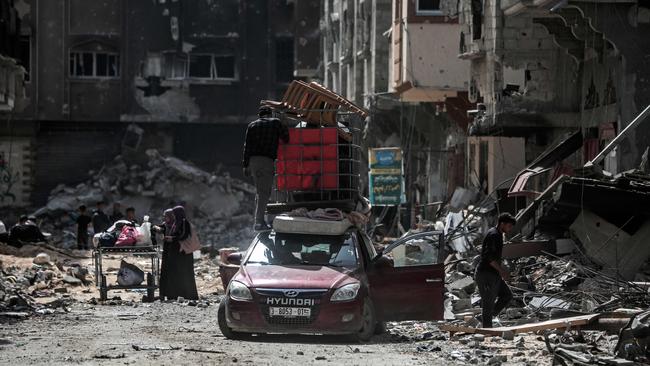
The U.N. and aid groups mostly stopped delivering food and other aid to northern Gaza in early February, after an aid convoy was hit by Israeli fire. Lawlessness and looting fuelled by the desperation of northern Gazans have thwarted attempts to resume deliveries.
Israel is considering opening a new crossing to allow aid directly into northern Gaza, according to Israeli officials. While Israel wouldn’t be providing the aid, the Israeli military would be responsible for securing it, said one official, adding that the crossing could open as soon as Friday.
Dow Jones


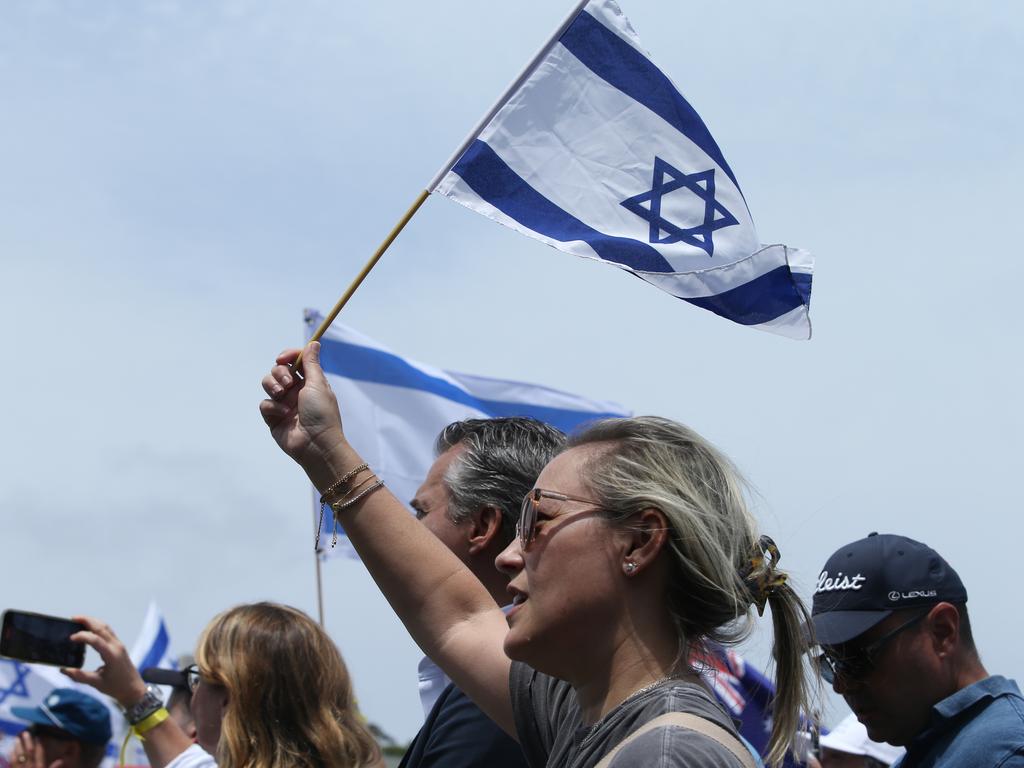
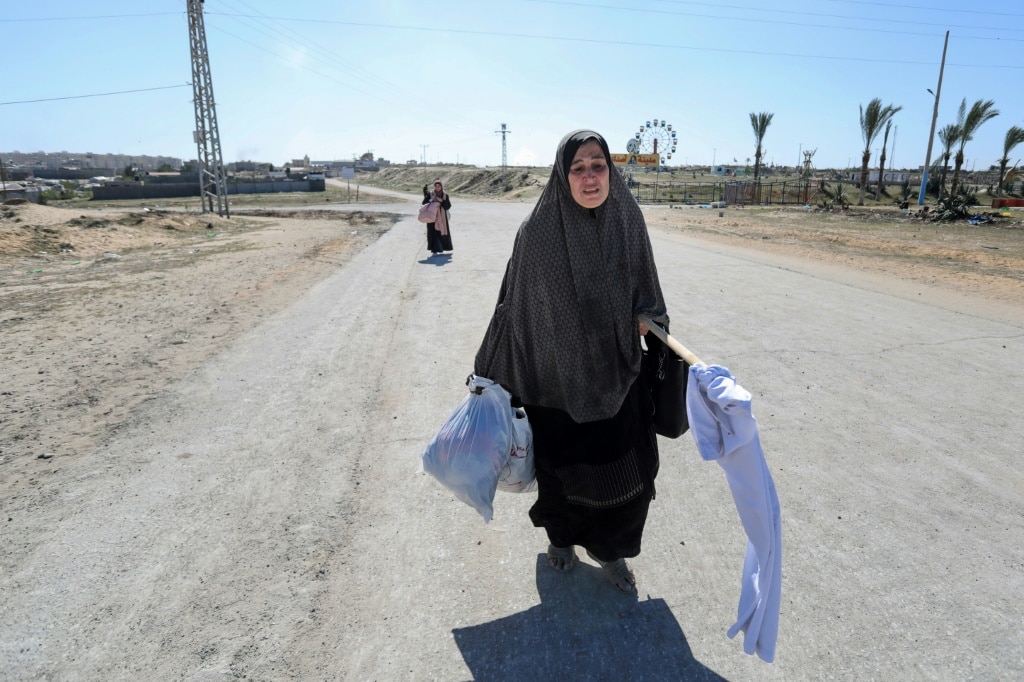
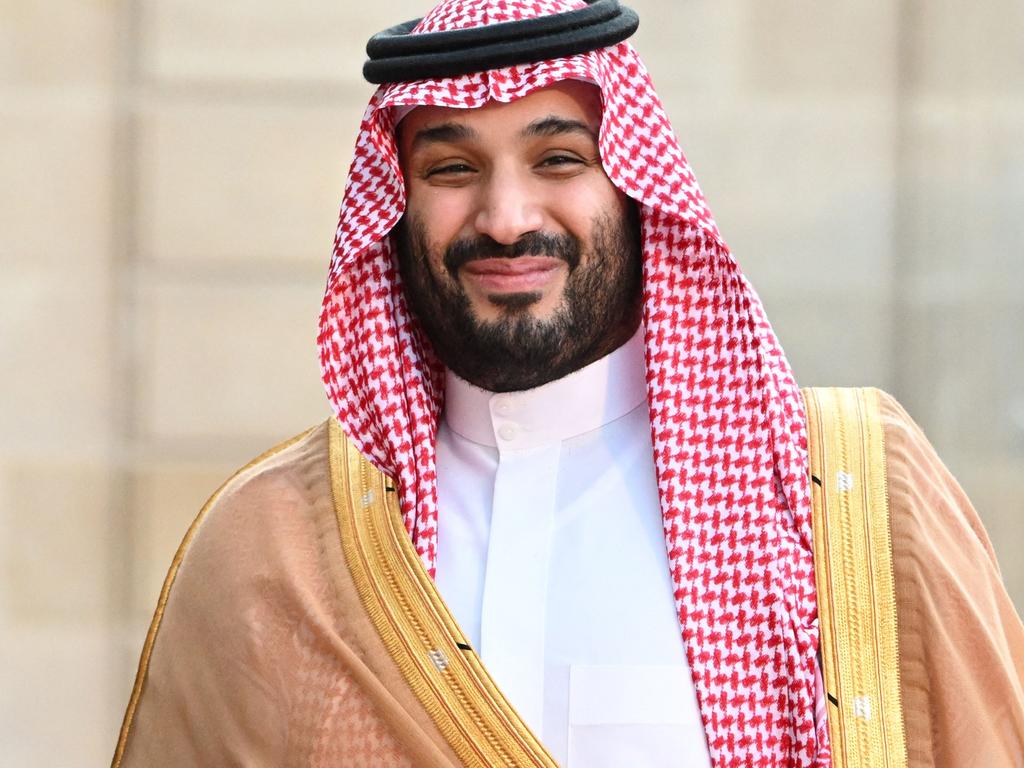
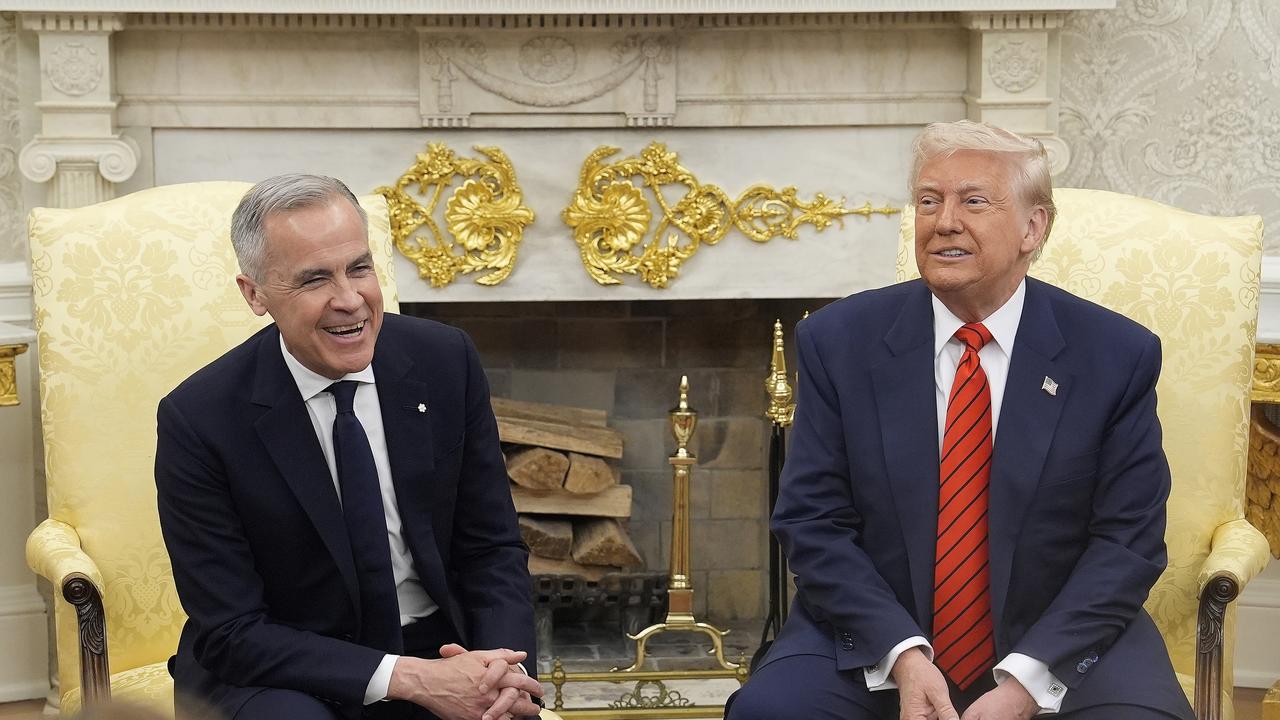

To join the conversation, please log in. Don't have an account? Register
Join the conversation, you are commenting as Logout